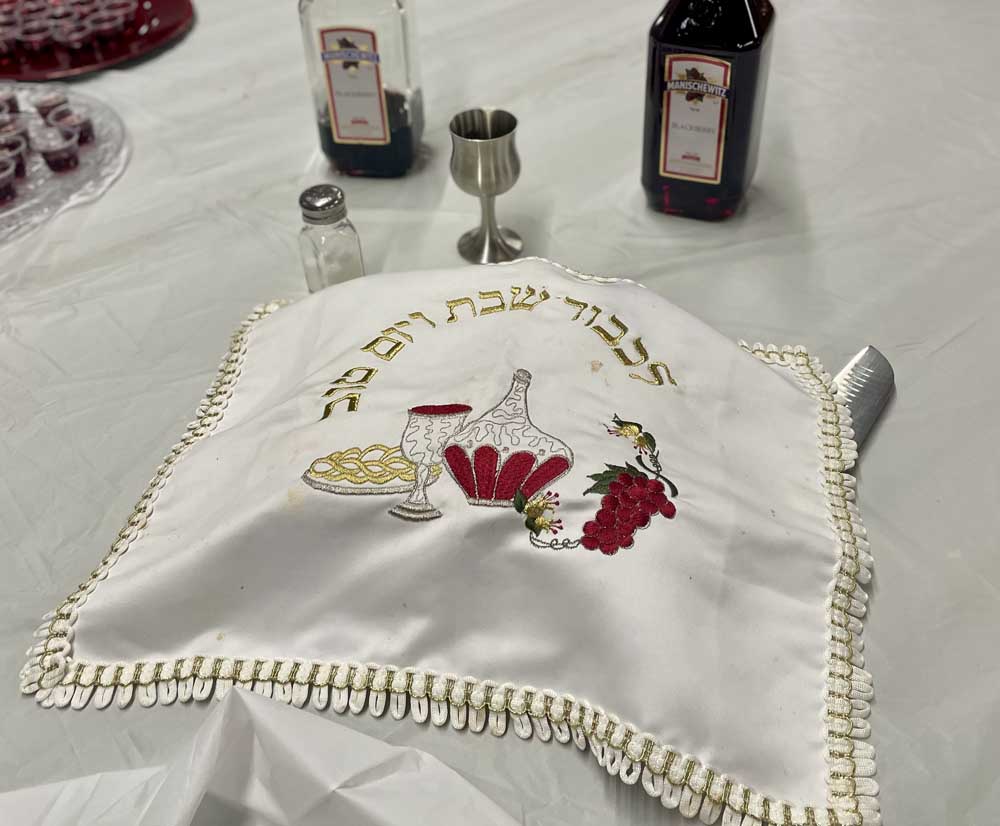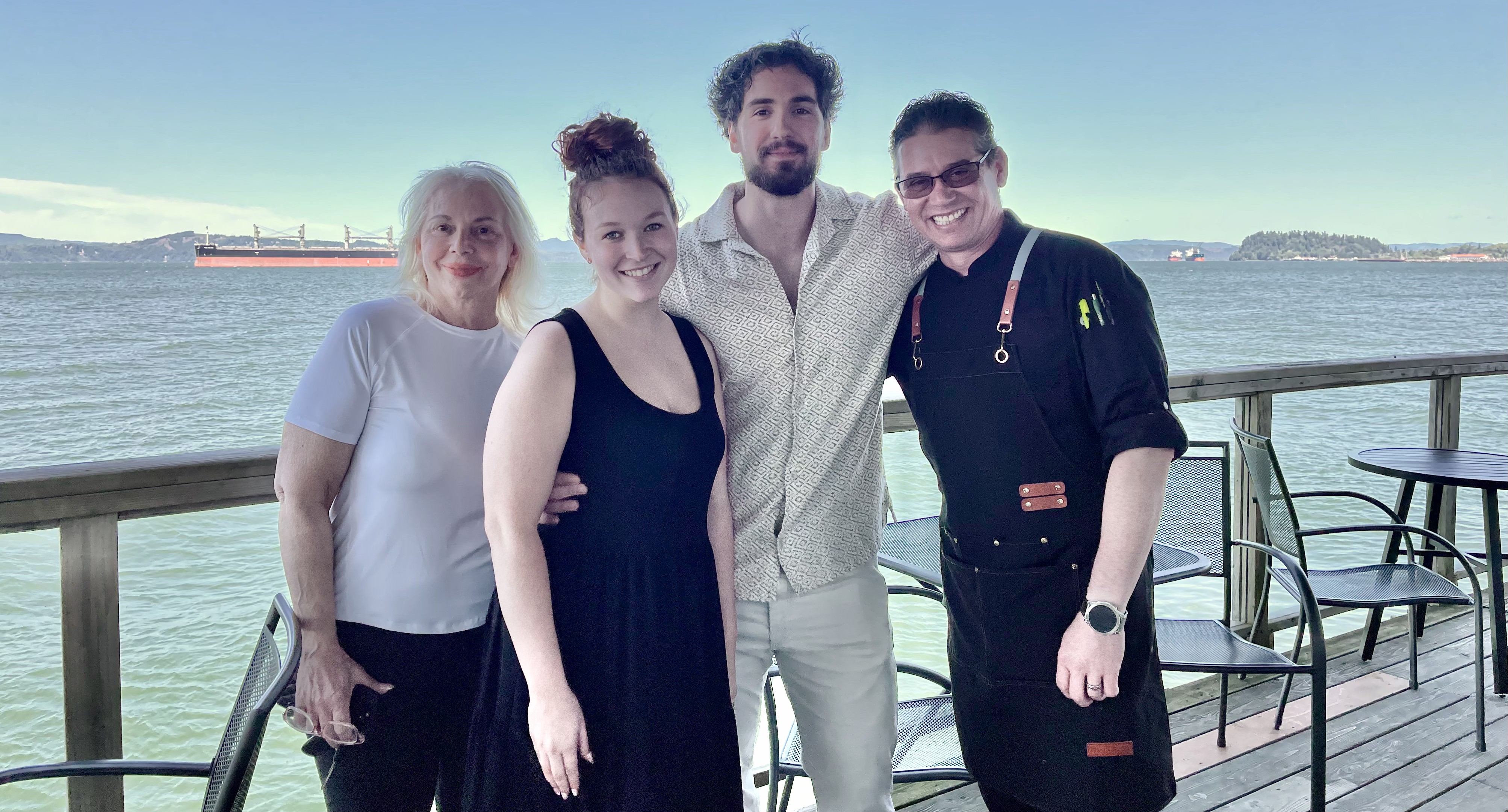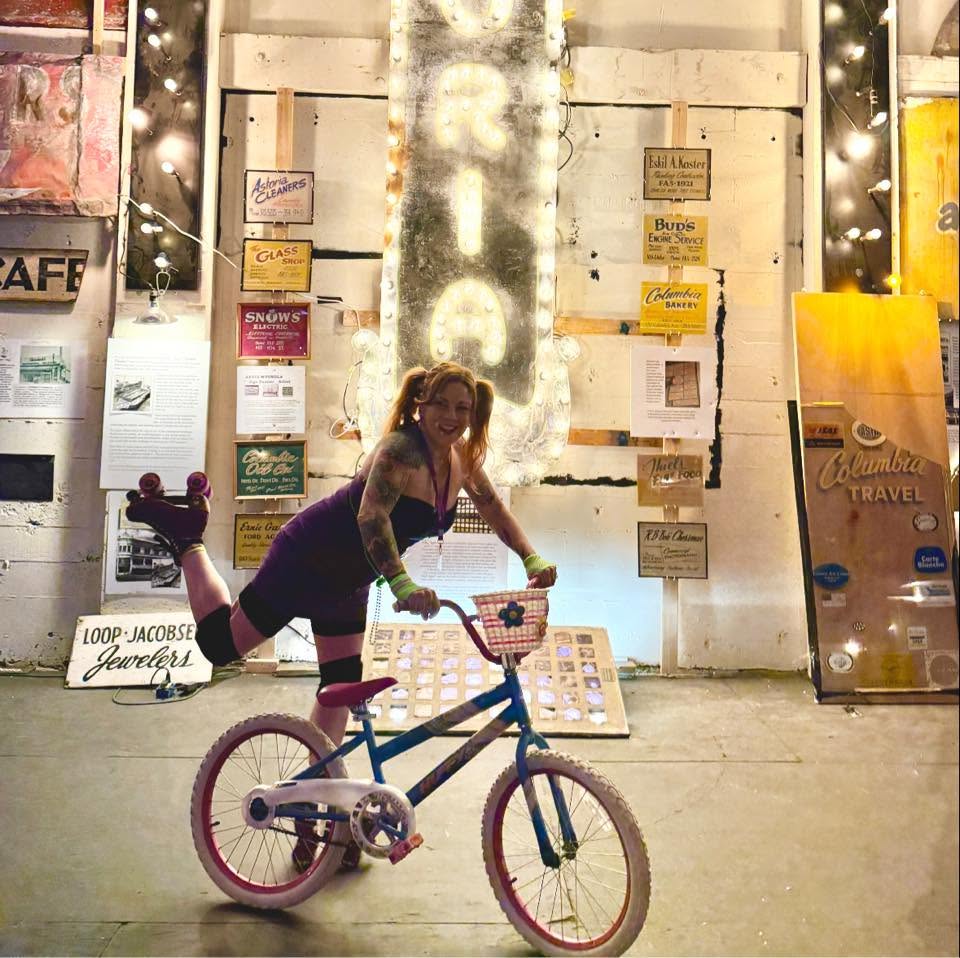‘We’d like the tradition to continue’
Published 10:00 am Wednesday, September 4, 2024

- The North Coast Shabbat Group marks Shabbat.
SEASIDE — On a summer Friday evening, the Bob Chisholm Community Center glows with candlelight as friends and family gather to uphold one of Judaism’s most well-known traditions: the commemoration of Shabbat, the weekly day of rest.
Trending
Though the holiday comes every week, Jewish residents in Clatsop County congregate only four or five times a year. The faith’s demographic is sparse, and a lack of a synagogue, temple or other designated Jewish community center presents difficulties to meet year-round.
Despite the challenges, the North Coast Shabbat Group, now led by Carolyn Wexler and Avrel Nudelman, has provided a safe and welcoming space for people to celebrate their faith and culture for over 30 years.
Wexler and Nudelman, along with many Shabbat participants, are not full-time residents of the North Coast. But they cherish the time they get to spend here and value the opportunity to give people a place to gather and pray.
Trending
Shabbat emphasizes the value of slowing down, connecting with others and taking time for yourself.
“Elden and I really didn’t know a lot of the people until we started attending the North Coast Shabbat Group, and now we’ve made a lot of friends,” Wexler said of she and her husband. “Just feeling the camaraderie when you’re at the services, you know you’re with people that support you, especially during these times. You know, there’s an awful lot of antisemitism around.”
The war between Israel and Hamas has fueled a resurgence of antisemitism and bigotry against Muslims.
In an annual report on bias crimes released in July by the Oregon Criminal Justice Commission, reports targeting people over religion showed the largest increase from 2022 to 2023, with Jewish and Muslim people the most frequent targets.
An invitation to dinner
Another challenge came from the COVID-19 pandemic, which effectively shut down in-person gatherings for months.
Though Wexler has been attending North Coast Shabbat Group services regularly since 2013, she stepped into a leadership role in 2019 and steered the group through two summers of Zoom services.
Not many people tuned in to the online Shabbat gatherings. And the first service back at the Bob Chisholm Community Center in 2022 had only around a dozen participants.
But last summer, Wexler said more people started attending again. Through word of mouth, advertising in the Portland-based Jewish Review and a new collaboration with Portland synagogue Neveh Shalom, she’s been working hard to keep those numbers up.
For many years, Nudelman kept participants coming back with his sermons, which he prepares for one meeting out of the year. Thoughtful, topical and usually related to that week’s Torah portion, it takes him two or three hours to write out his message.
“It’s more important in Judaism to be a part of a community, than just to do it alone,” he said. “There are certain prayers you can only do with 10 people. And it’s nice for people to come together, rather than be isolated on Shabbat … It’s just a very warm feeling, the security of knowing you’re part of a community that’s celebrating together.”
The group’s co-founder, Shirley Nudelman, a distant relative of Avrel’s, said it all started with an invitation to dinner in 1991.
Frieda Tobin, a friend, had asked Nudelman and her husband if they’d like to join them at their house in Seaside. When Nudelman arrived, another couple, the Shains, were there. Once gathered, Tobin asked everyone if they’d like to start a Shabbat group.
They said “yes.”
“In the early times, we met in each other’s homes,” Shirley Nudelman said. “We went first to Frieda’s and then to the Shains, and then they went to our house, and it was packed. I said, ‘We need to get a bigger, better place.’”
Over time, the North Coast Shabbat Group shifted services to the Shilo Inn before settling into the Bob Chisholm Community Center.
“As long as there are Jewish people at the beach on the weekend, a lot of us will want to get together and enjoy each other, and be able to pray,” Shirley Nudelman said.
Steven Shain and his family have been a part of the group from the very beginning.
“I was in my late 30s when it started,” he said. “My daughter was 5, so I would have been 38. What I remember is, whenever we would go, my wife and I would be practicing the service and prayers on the way down to the beach.”
Shain describes those early services as being very “haimish,” a term of Yiddish origin meaning cozy, warm and comfortable.
“My mother-in-law had this thing that she would always make for services,” he recalled. “She would make these chocolate chip prunes, these big Brooks prunes, and she would always have them out. We still have people talk to us and say they remember those.”
‘Teach it to your children’
Though the location has changed over the years, and some participants move away, pass on or otherwise become disengaged, the spirit of haimishness persists.
Tema Landecker, who lives in Brownsmead, attended her first service last summer.
“The people are so warm, and it was so nice to be surrounded by community,” she said. “And that’s what’s kept me coming back, is the community of it, and the familiarity of the Jewish prayers and being connected to my culture.”
Only a handful of service participants are full-time residents of the North Coast, leaving a notable gap in Jewish community activities from fall to spring. A few have suggested pulling together resources for Hanukkah celebrations and Shabbat dinners.
“We’re working on making a few more small things happen,” Landecker said. “But because a lot of people are seasonal, it’s hard to do it year-round.”
At 30 years old, Landecker is one of the youngest regular Shabbat attendees. Many others in the group have expressed a desire to see younger generations participate in the services, hoping they will keep the North Coast Shabbat Group alive in years to come.
“One of the commandments in Judaism is to teach it to your children,” Avrel Nudelman said. “We’d like that to happen, and we’d like the tradition to continue.”









